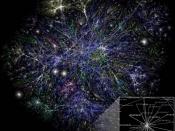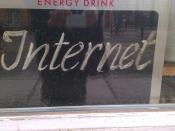As stated in Merriam Webster Online Dictionary , Community is and can be 1 : a unified body of individuals: as a: State, Commonwealth b: the people with common interest living in a particular area c: an interacting population of various kinds of individuals in a common location d: a group of people with a common characteristic or interest living together within a larger society e: a group linked by a common policy f: a body of persons or nations having a common history or common social, economic, and political interests. 2 a: Joint ownership or participation b: common character: likeness c: social activity: fellowship d: a social state or condition.
Community is an important aspect for us all. Humans have a natural affinity for 'community'. When used in common parlance, the word community signifies the body of the people. Two centuries ago, physical communities brought people together by way of town hall meetings, barn-raising events and annual festivals.
Today, the idea of community has morphed into subsets of people with whom we spend time: family, church or temple, societies and clubs, sports teams -- and increasingly, the Internet. In this paper, I will discuss this new emerging community in terms of modernity, how time and space are perceived, and the notion of private and public spaces.
In recent years, the Internet has given rise to countless dot-com companies. It has also continued to do what it was first created to do: to bring people together with like-minded others to exchange information and organize themselves. It is host to millions of humans who swap e-mail, post articles to newsgroups and work and play together in online virtual communities, developing cyber friendships that can be as satisfying as ones that are face to face. Such virtual networks have existed for years,


